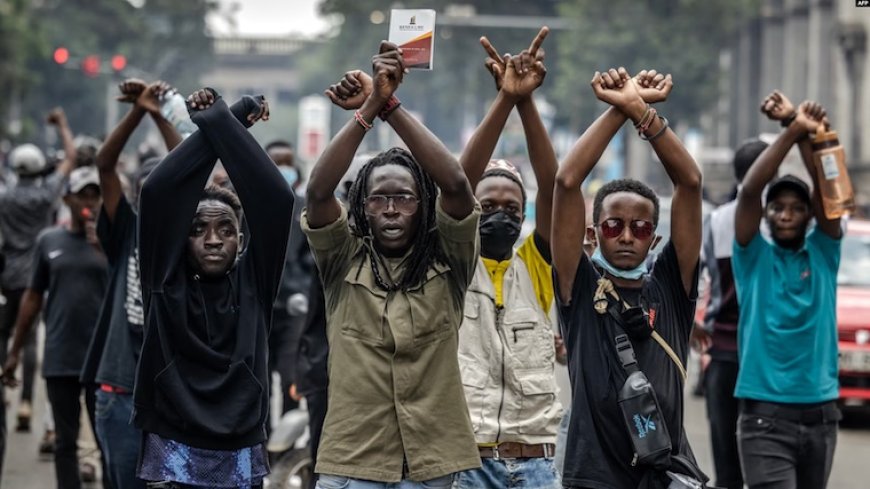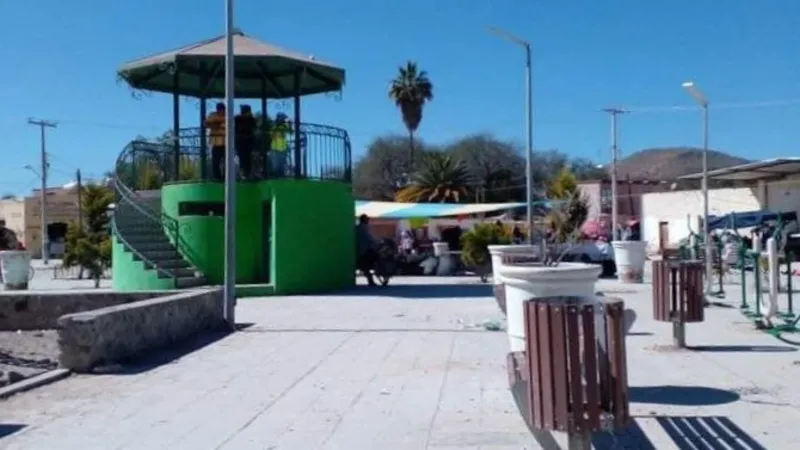Kenyan president sacks cabinet after anti-tax protests

Skip to content
Kenyan president sacks cabinet after anti-tax protests
2 hours
Kenya's under-fire President William Ruto has dismissed with "immediate effect" all his ministers and the attorney-general, following the recent deadly protests that led to the withdrawal of an unpopular tax bill.
The president said the move came after "reflection, listening to Kenyans, and after holistic appraisal of my cabinet".
He has said he will now consult widely in order to set up a broad-based government.
The dissolution of his cabinet does not affect the deputy president, who can’t legally be fired, and the prime cabinet secretary who is also the foreign affairs minister.
Mr Ruto said that government operations would continue uninterrupted under the supervision of senior civil servants.
He said he would consult “across different sectors and political formations and other Kenyans, both in public and private” over a new government, but did not say when it would be announced.
The constitution does not say for how long the president can operate without a cabinet. But analysts say Mr Ruto will have to name a new team soon to avoid running into more problems with the country's aggrieved youth.
The dramatic dissolution of the cabinet is highly unusual, coming less than two years after he took office.
Three of the sacked ministers were MPs before leaving their legislative roles to join the cabinet barely two years ago.
One of them is Aden Duale, who in a prompt post on X (formerly Twitter) thanked the president and said he would "forever be indebted to him and the people of Kenya for this opportunity to serve" as Kenya's defence minister.
"Anything that paves the way for the best interest of our nation, at this point in time, is preeminent," posted Soipan Tuya, the dismissed environment minister.
Last Thursday, President Ruto chaired a cabinet meeting which one of the local newspapers described as the "last supper" for the ministers.
Some of the ministers were linked to corruption scandals that led to the suspension of senior government officials within several ministries. But Mr Ruto had defended them, saying that there were no evidence to sack them.
Last October, Mr Ruto announced a mini-cabinet reshuffle that affected at least eight ministers.
The last time an entire cabinet was dissolved was in 2005 when then President Mwai Kibaki did so shortly after losing a referendum over a new constitution.
Mr Ruto has been under pressure from Kenyans who have continued holding anti-government protests and demanding more accountability from government, even though he agreed to withdraw his controversial tax rises.
He has pledged to set up an inexpensive but "broad-based government", hinting at the possibility of co-opting the opposition.
The law allows the president to nominate a maximum of 22 ministers, with a minimum of 14.
On Tuesday, the president met opposition leader Raila Odinga and announced plans to form a 150-member dialogue panel to help solve the current crisis.
But young Kenyans, who have been organising the protests, rejected Mr Ruto's plan and insisted that he disband the cabinet and take action against corrupt officials.
The tax rises were intended to help reduce Kenya's large debts but protesters insisted the government should first cut spending, saying there was too much waste.
Last week, Mr Ruto announced a number of austerity measures.
He also ordered a freeze in proposed pay rises for members of his cabinet and parliament following a public outcry.
But these measures failed to appease the protesters with some calling for the president to step down using the hashtag #RutoMustGo.
While the dismissal of the cabinet is a bold step towards addressing government inefficiency, the success of this move will heavily depend on the efficacy of the new ministers.
His critics have warned Mr Ruto against returning the sacked ministers to the cabinet.
Although large-street protests have subsided, anger against the government has continued, with more demonstrations planned for next Tuesday. It is not clear if the protests will continue after the dissolution of the cabinet.
"I have never in my life felt so proud to be Kenyan than I am now. The power lies with the people, always," Hanifa Farsafi, one of the protest organisers, posted on X.
Source : BBC
























































